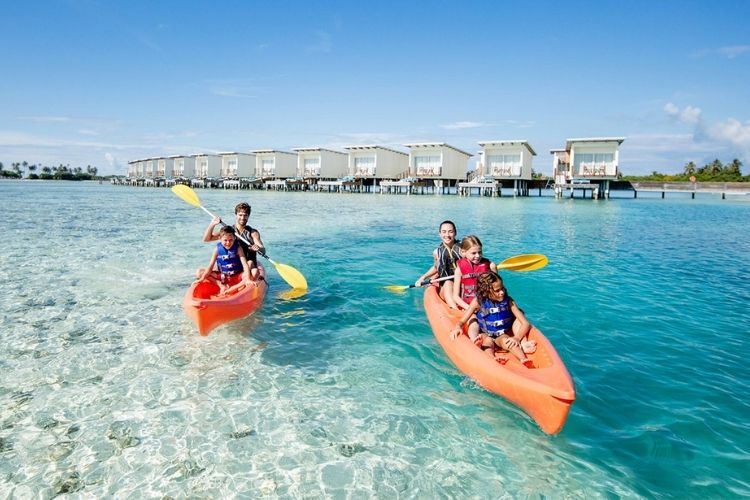Holiday Inn Resort Kandooma Maldives has been Nominated for Condé Nast Traveler 2021 Readers’ Choice Awards. Several more resorts in the tropical holiday destination have been nominated for the prestigious awards.
Kandooma added several accolades to its portfolio over the years. Most notably, the resort claimed the title of Indian Ocean’s Leading MICE Hotel in 2018 and 2019 from the World Travel Awards.
We’re so excited to share with you that we’ve been nominated in Condé Nast Traveler’s 2021 Readers’ Choice Awards. We’re grateful for our colleagues’ and guests’ support through these challenging times and would be delighted for your continued support to vote for us.
A statement by Holiday Inn Resort Kandooma Maldives.
To cast your vote for Holiday Inn Resort Kandooma Maldives in the Condé Nast Traveler 2021 Readers’ Choice Awards, visit https://www.cntraveler.com/rca/vote. The voting for the awards this year is open until 31st May 2021.
About Holiday Inn Resort Kandooma Maldives
This stylish resort located in South Male Atoll boasts 160 villas polished in four different styles. The resort’s villa categories include; beach and garden villas, beach houses, family villas and over-water villas.
You can indulge in a soothing Thai massage and other beauty treatments at Kandooma Spa. Moreover, book the Spa Suite’s private garden with a plunge pool for a romantic afternoon. The resort offers an array of watersports activities for guests as well. Diving and snorkelling among colourful reefs remain just five minutes by boat from Kandooma Maldives.
Also read: Stay for 3 nights, Pay for 2 at Holiday Inn Resort Kandooma Maldives
Meanwhile, for a relaxed evening, grab a coffee and a wood-fired pizza from Kandooma’s Bokkuraa Coffee Club. And then unwind beside the resort’s sparkling infinity pool. Holiday Inn Resort Kandooma Maldives is accessible via a short 40-minute speedboat journey from the main Velana International Airport.







